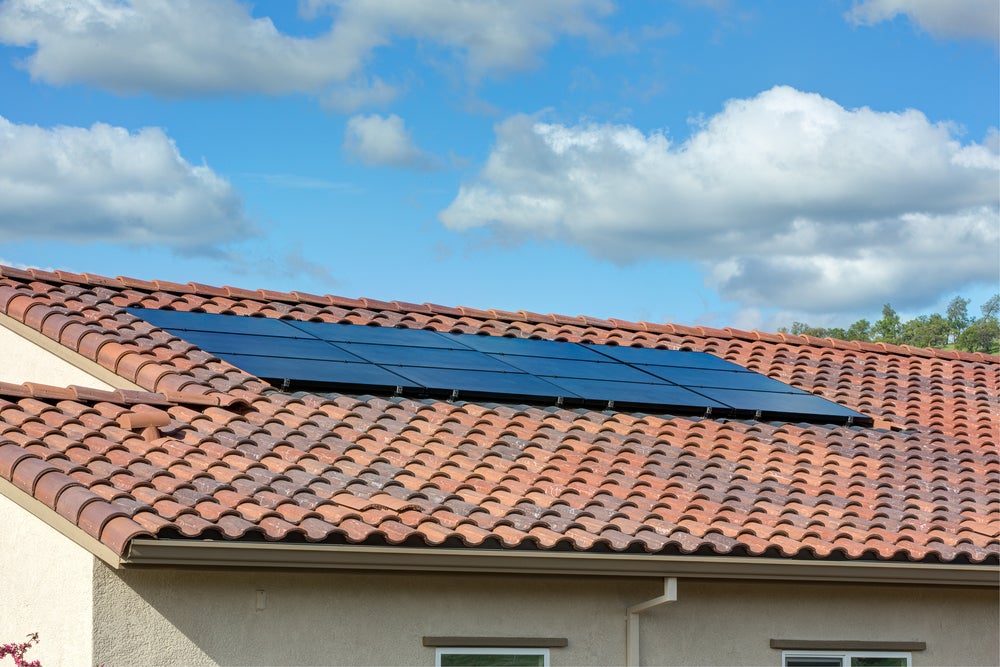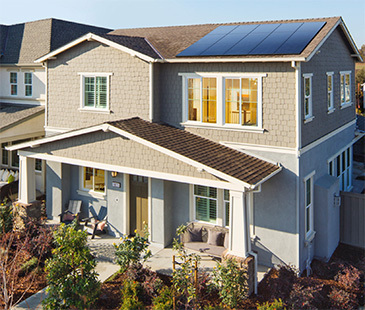Is My House a Good Candidate for Solar Panels?
If you're thinking about going solar, you're probably wondering: Is solar cost effective? Is my roof suitable for solar panels? Will solar energy generate enough electricity to power my home? Who makes the best solar panels?
But first, it's important to explore if solar panels for your home make sense. Here are some key questions we ask anyone interested in buying or leasing a solar energy system to make sure their home is best suited for making power with solar panels.
1. How much is your energy bill?
Knowing how much you pay for energy is the first step in evaluating whether your house is a good candidate for solar. The main question is, will it save you money? In some areas, electricity is very inexpensive. For most homeowners, the electricity bill is a dreaded monthly expense. The general rule is that solar makes the most financial sense for someone with a monthly electricity bill of at least $75.
Why? Because going solar replaces utility energy with solar energy, and we want our customers to see a return on that investment by paying less for that energy.
A utility bill of $75 is the threshold at which residential solar customers will see solar savings. There are several ways to go solar, depending on a customer's needs and goals.
SunPower offers zero-down lease, loan and cash purchase options, each with different benefits. Ask your local solar installer about available rebates, federal incentives and electricity policies where you live.
The overall idea is to pay less than you currently pay, lock in your electricity rate and save money by generating your own clean energy onsite.
For more information visit our solar financing page.
2. What kind of roof do you have?

Solar panels work best with strong, durable roofing materials, such as composite or asphalt shingle, concrete tile or standing seam metal. For roofing materials such as wood shake and slate tile, or for roofs made of clay with mortar or composite metal/stone coated steel, you can still go solar but you'd want to choose a solar professional who has experience installing solar panels on those types of roofs. Also, the type of mounting hardware your solar installer plans to use is important. SunPower Equinox® uses InvisiMount® hardware that is designed to work with most roof types and is visually attractive.
3. Does your roof need to be replaced?
It's a good idea to replace a roof that is near the end of its life before installing solar because SunPower solar panels have an expected useful life of 40 years, and you wouldn't want to unnecessarily have to remove them. Solar panels should be installed on roofs that are in good condition and will not need to be replaced in the near future.
Considering that your savings from high-efficiency solar panels could pay for the cost of a re-roof in as little as five years after installation, it may be worth it to do any needed roofing work before your solar installation.
4. How much sunlight does your roof receive?
To see if your house is a good candidate for solar, try out a solar panel suitability checker such as Google's Project Sunroof. Then set up an appointment for a solar consultation with an expert who will visit your home to inspect its orientation (solar panels facing south capture more energy), roof angle and tree shading to see if your roof will receive enough sunlight to meet your family's energy needs.
SunPower's solar consultations are free, and you can learn a lot about your home and best energy options. The more direct sunlight your home receives, the more power the panels will produce. While SunPower solar panels are known for having the highest efficiency at generating power in low-light situations, excessive shading will reduce the amount of power that can be generated.
It's also important to know that SunPower's Equinox solar solution has factory integrated micro-inverters in each panel, an innovative solar design feature that means if one panel isn't producing energy because of shade, neighboring panels that might be receiving more sunlight can still generate solar energy for your home.
5. What is your local climate like?
Solar energy can be generated in all sorts of extreme climates, from rainy areas such as Seattle, to extremely hot locations such as Los Angeles, California. Solar suitability checker tools can help you understand how this could affect solar on your house. High-efficiency solar panels convert direct and indirect sunlight into electricity, so they work even on cloudy days. A solar consultant will estimate the amount of energy your system will produce so that you can see the potential savings before you decide to go solar.
Ready to learn more about how you can power your home with clean, renewable solar energy?
SunPower is changing the way our world is powered by making solar and storage more accessible to everyone. With nearly 40 years of dedicated solar experience, we're the top-rated U.S. solar company with over 15,000 five-star reviews.*Based on public solar providers in the U.S. Includes average of BBB, Yelp, ConsumerAffairs, BestCompany, Google, Solar Reviews and Energy Sage review scores as of 7/1/23. Based on reviews from BBB, Yelp, ConsumerAffairs, BestCompany, Google, Solar Reviews and EnergySage review scores as of 10/22/23. If you're considering installing solar panels, energy storage, or EV charging at your home, make sure you talk to SunPower.
Schedule your free, no-obligation consultation with SunPower by calling 1-800-SUNPOWER. Or click the Get Started button and we'll get in touch with you! Our team of Solar Advisors is here to help make your transition to a sustainable lifestyle.

